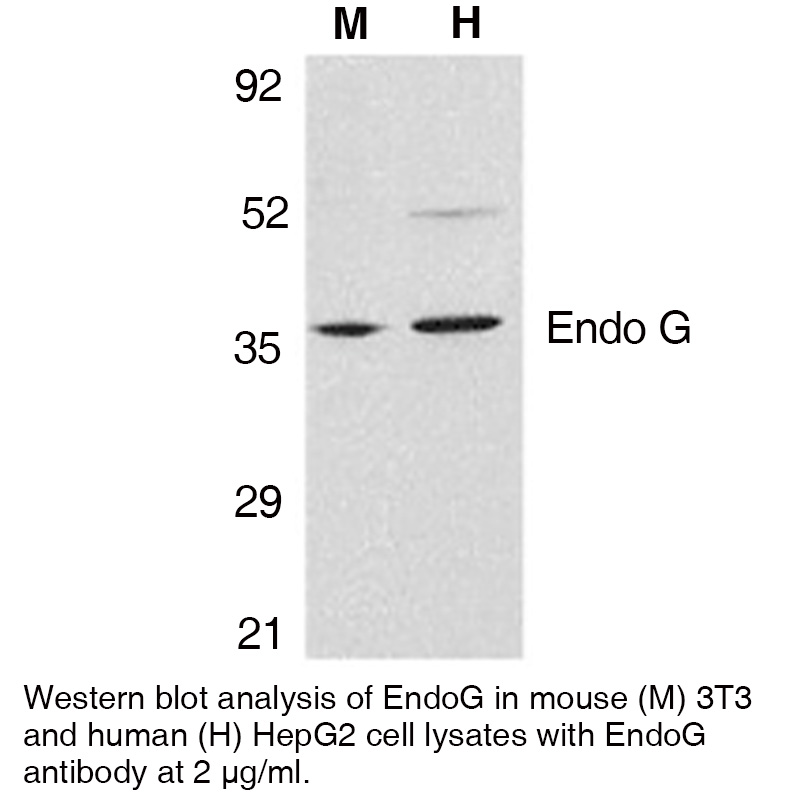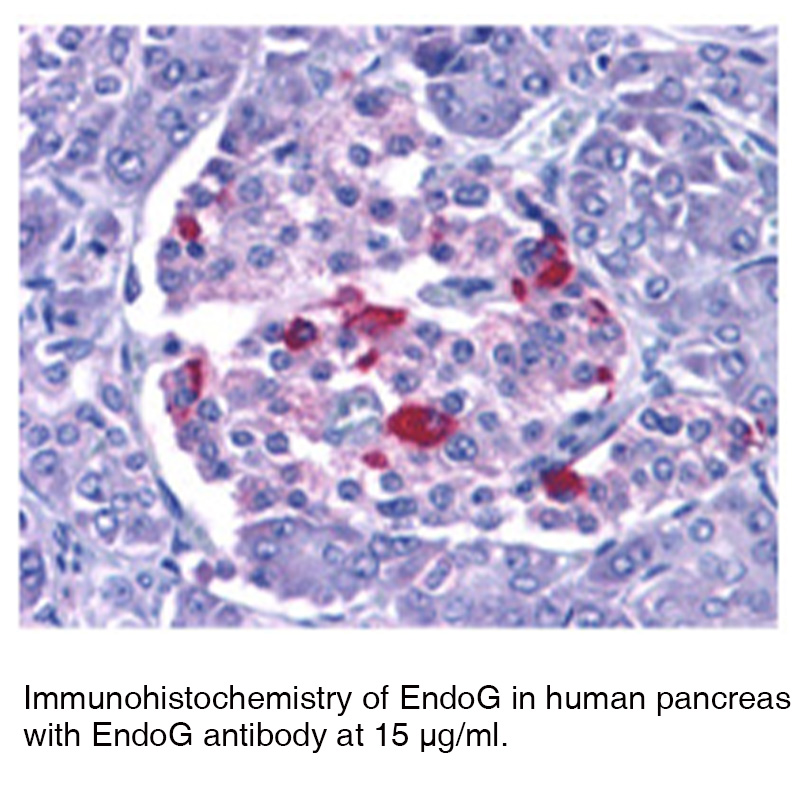Anti-Human EndoG
Data
- -
- -
Antibody DetailsProduct DetailsReactive Species Human Host Species Rabbit Immunogen PN:E133 Product Concentration 0.5 mg/ml Formulation This polyclonal antibody is formulated in phosphate buffered saline (PBS) pH 7.4 containing 0.02% sodium azide as a preservative. Storage and Handling This polyclonal antibody is stable for at least one week when stored at 2-8°C. For long term storage, aliquot in working volumes without diluting and store at –20°C in a manual defrost freezer. Avoid Repeated Freeze Thaw Cycles. Country of Origin USA Shipping Next Day Ambient RRIDAB_2829983 Each investigator should determine their own optimal working dilution for specific applications. See directions on lot specific datasheets, as information may periodically change. DescriptionDescriptionSpecificity Rabbit Anti-Human EndoG recognizes mouse, rat and human EndoG. This polyclonal antibody was purified using affinity chromatography. Background The fragmentation of nuclear DNA is a hallmark of apoptotic cell death. The activities of caspase and nuclease are involved in the DNA fragmentation. Caspase-activated deoxyribonuclease (CAD), also termed DNA fragmentation factor (DFF40), is one such nuclease, and is capable of inducing DNA fragmentation and chromatin condensation after cleavage by caspase-3 of its inhibitor ICAD/DFF45. Caspase and CAD independent DNA fragmentation also exists. Recent studies demonstrated that another nuclease, endonuclease G (endoG), is specifically activated by apoptotic stimuli and is able to induce nucleosomal fragmentation of DNA independently of caspase and DFF/CAD.1,2 EndoG is a mitochondrion-specific nuclease that translocates to the nucleus and cleaves chromatin DNA during apoptosis. The homologue of mammalian EndoG is the first mitochondrial protein identified to be involved in apoptosis in C. elegans.2 EndooG also cleaves DNA in vitro.4 PubMed References & Citations1. Li, LY. et al.(2001) Nature. 412(6842):95-9. 2. Parrish, J. et al. (2001) Nature. 412(6842):90-4. 3. Hengartner, MO. et al. (2001) Nature. 412(6842):27-9. 4. Widlak, P. et al. (2001) J Biol Chem. 276(51):48404-9. Technical ProtocolsCertificate of Analysis |




